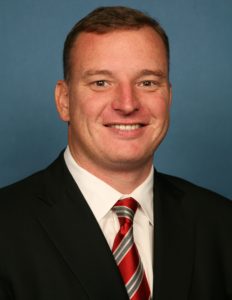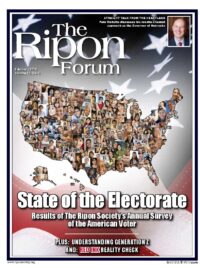
Congress’s approval rating is in the toilet – the American public calls D.C. “The Swamp” and those in it “sewer rats.” It’s no secret why. Back home, people look around and see crumbling dams and levees and nothing being done to fix them. This perpetuates the belief that those in Washington are content to do nothing. However, this hasn’t been my experience. People come to Washington to genuinely try and make their communities and our nation a better place.
I have served in Congress since 2009 and was here when Republicans voted — with my support — to ban earmarks. After many frustrating appropriations cycles, continuing resolutions, and government shutdowns, I’ve realized the earmark ban has accomplished few, if any, of its intended goals. We’ve neither decreased funding nor made the process more transparent or efficient. Congress has simply relinquished its Article I “power of the purse” to the executive branch and impeded its own ability to fund critical water infrastructure projects. There has to be a better way to do the people’s work.
After many frustrating appropriations cycles, continuing resolutions, and government shutdowns, I’ve realized the earmark ban has accomplished few, if any, of its intended goals.
Many dams, levees, and ports are overseen by the Army Corps of Engineers and 85% of Corps projects are geographically specific and therefore defined as earmarks. The earmark ban makes it impossible for Members to request funding for these projects, even when they know funding is needed. I want these projects excluded from the definition of an earmark, thereby allowing Members of Congress—not unelected bureaucrats in government agencies—to direct funds towards authorized and vetted water projects. This wouldn’t authorize any new funding or repeal the earmark ban entirely; it simply allows Members to prioritize funds for water projects that are disproportionately impacted by the ban because they are not funded through statutory language or a competitive award process.
Some of my colleagues and outside interest groups oppose my efforts arguing that even limited exclusions to the ban are the slippery slope to corruption and increased spending. They claim that members will ultimately succumb to their need for pork and direct funds towards projects that only benefit them and a few special interests.
Earmarks are not inherently bad. They are merely tools that allow members to prioritize funds for important projects. When people talk about the corruption that will inevitably accompany the return of earmarks, they mention abusers like Duke Cunningham or big ticket projects like the “bridge to nowhere.” I would like to remind everyone that Duke Cunningham, rightfully, went to jail, and the “bridge to nowhere” was never built. Scapegoating earmarks is easier than fixing our broken budget process which led to haphazard policymaking and abuse in the first place. Again, I am not advocating a return to this system, just a limited exclusion for projects that have already been authorized and vetted by Congress. We wouldn’t even be having this discussion if it wasn’t our Constitutional duty. So let’s do what the Founders intended, but let’s do it right.
Concerns that excluding Corps projects from the definition of earmark will increase spending and contribute to our national debt are mistaken. Yes, Congress can work to spend the taxpayers’ dollar more responsibly, but that’s just it — Congress is the institution that should spend it. Even at the height of their use, earmarks accounted for 0.5% of federal spending. The ban didn’t change how much money the government spends, just who spends it. Now the majority of funds for Corps projects are determined by unaccountable employees in the executive branch. Congress can’t even request additional funds for specific projects, even if it’s necessary. If a project fails to receive funding, members have no recourse to offer their constituents.
A True Representative government should decide where tax dollars are directed, debate them openly in the halls of congress, and vote on them.
Members of Congress are not fundamentally immoral or irresponsible when it comes to spending the taxpayers’ dollars. We live in a completely different world than we did even a decade ago, and the public has far more tools to hold elected officials accountable. Most members just want to advocate for policies and projects that enhance the well-being of their district — a responsibility directly derived from the Constitution. I can assure the cynics that a project like the Herbert Hoover Dike is not some “pet project” that benefits a select few — it impacts all of South Florida.
We know the American people are fed up with Congress and are sick of hearing the same excuses for inaction. Congress hasn’t successfully enacted an appropriations bill on time since 2009, and I’m not foolish enough to believe that this is the solution to all of our problems. However, it’s a step in the right direction. A true representative government should decide where tax dollars are directed, debate them openly in the halls of Congress, and vote on them. This institution can prove to the American people that we can be trusted to spend their tax dollars in a transparent and responsible manner.
Tom Rooney represents the 17th District of Florida in the U.S. House of Representatives.




